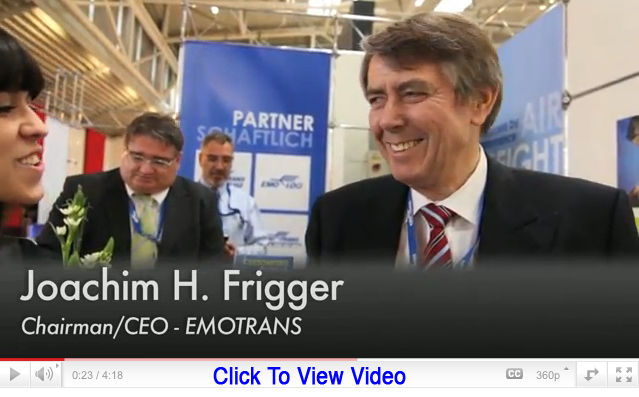
 A
multitude of voices, different lobbies, and rarely a coherent strategy:
this sympathetic, basic, democratic but diverting, and therefore mostly
inefficient approach is characteristic for the air cargo industry in
Switzerland. At least, it was, until now, but for the inception of IGAC,
which the players opted to slip under one roof in an effort to turn
things for the better in the times ahead. A
multitude of voices, different lobbies, and rarely a coherent strategy:
this sympathetic, basic, democratic but diverting, and therefore mostly
inefficient approach is characteristic for the air cargo industry in
Switzerland. At least, it was, until now, but for the inception of IGAC,
which the players opted to slip under one roof in an effort to turn
things for the better in the times ahead.
IGAC – the acronym stands for ‘Interest
Group Air Cargo,’ The club’s aim is to bundle the mutual
interests of forwarders, cargo airlines, customs, integrators, trucking
organizations, handling agents, GSAs, shippers, and other members of
the air freight business in order to give the industry a distinctive
and central voice.
“Our main mission is to better the
image and actively influence the future development of the air freight
industry in Switzerland. Secondly, we intend to push pressing cargo
related topics forward, especially at the country’s international
airports,” states Peter Somaglia. The Managing Director of Switzerland-based
ground handling agent Cargologic has been appointed the first President
of IGAC by participants during the organization’s foundation meeting
held recently in Zurich.
How to harmonize security processes, which
steps should be taken to push e-freight further forward and what must
be done to improve the information flow within the cargo industry are
the three major tasks IGAC has identified as important. One overlapping
topic, however, sticks out on the lobby’s to-do list: securing
the future growth of the air freight industry. This point is highly
crucial because enlarging or modernizing the ground infrastructure has
been neglected more than once. To insure preparedness, IGAC urged airports
and authorities to allocate sufficient space for building additional
warehouses in the inevitable event that increased tonnage demands it.
Somaglia names Basel as an example where
plans for constructing a modern warehouse were shelved for far too long
because of conflicting Swiss and French laws. It’s a unique and
bizarre situation due to the fact that the so-called “Euro Airport”
is located on French soil, but operated jointly by the local authorities
of bordering Switzerland, France, and Germany.
“Contracts with construction firms
failed to be signed and lay in the drawer ever since, all because of
irreconcilable labor laws in France and Switzerland,” criticizes
Somaglia. The result of this stalemate is a bottleneck situation, with
all transactions being processed in a completely outdated warehouse
at Basel airport.
Furthermore, Somaglia points at Zurich,
by far the country’s most important hub for passenger and cargo
traffic. There, an ultra modern 8.300 sqm-warehouse was inaugurated
in late June in a ceremony attended by a remarkable crowd of 1,500 invitees.
“That, however, seems to be it concerning
the capacity, since the airport operator hasn’t allocated any
further space for building additional facilities when needed.”
The manager emphasized that cargo flows are increasing constantly in
Switzerland.
“Although less than one percent
of all goods leaving the country are transported by air, the shipments
account for more than 35 percent of the export’s total value.”
The problem, adds Somaglia, is that hardly
anybody seems to know these hard facts except for the members of the
air freight industry. By not knowing the tremendous importance of this
business and how it relates to the well being of the entire country,
consequently most people value air freight as of little value to them.
IGAC wants to change this ignorance or
lack of information by channeling pressing air freight topics to authorities,
politicians, and the media.
Thanks to IGAC, there is a slim chance
Switzerland is on the brink of a small cargo revolution.
Heiner Siegmund/Flossie
|







